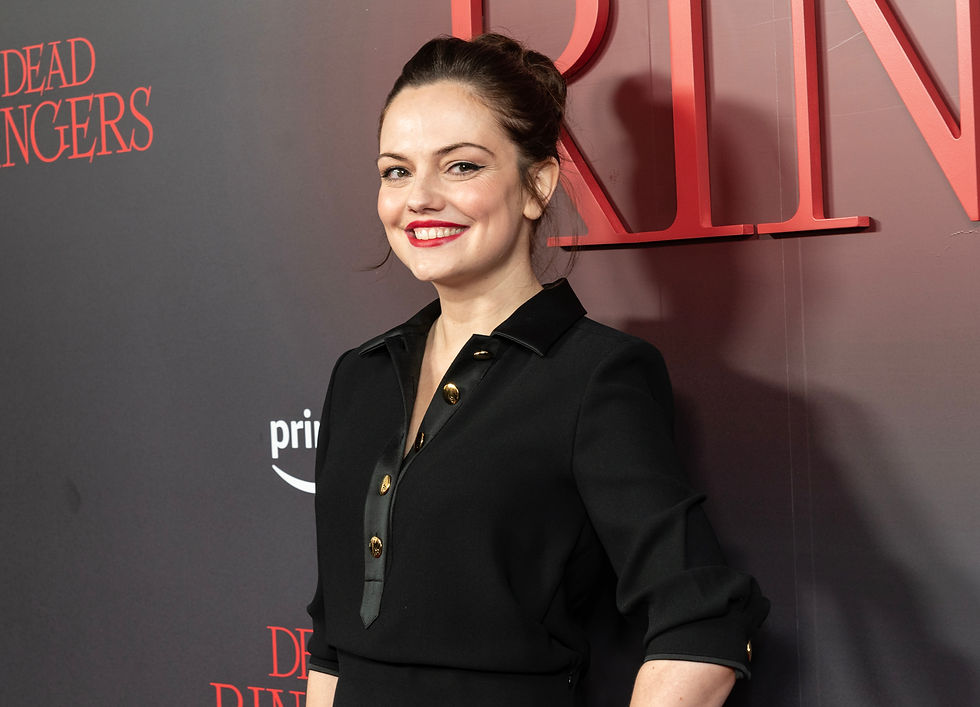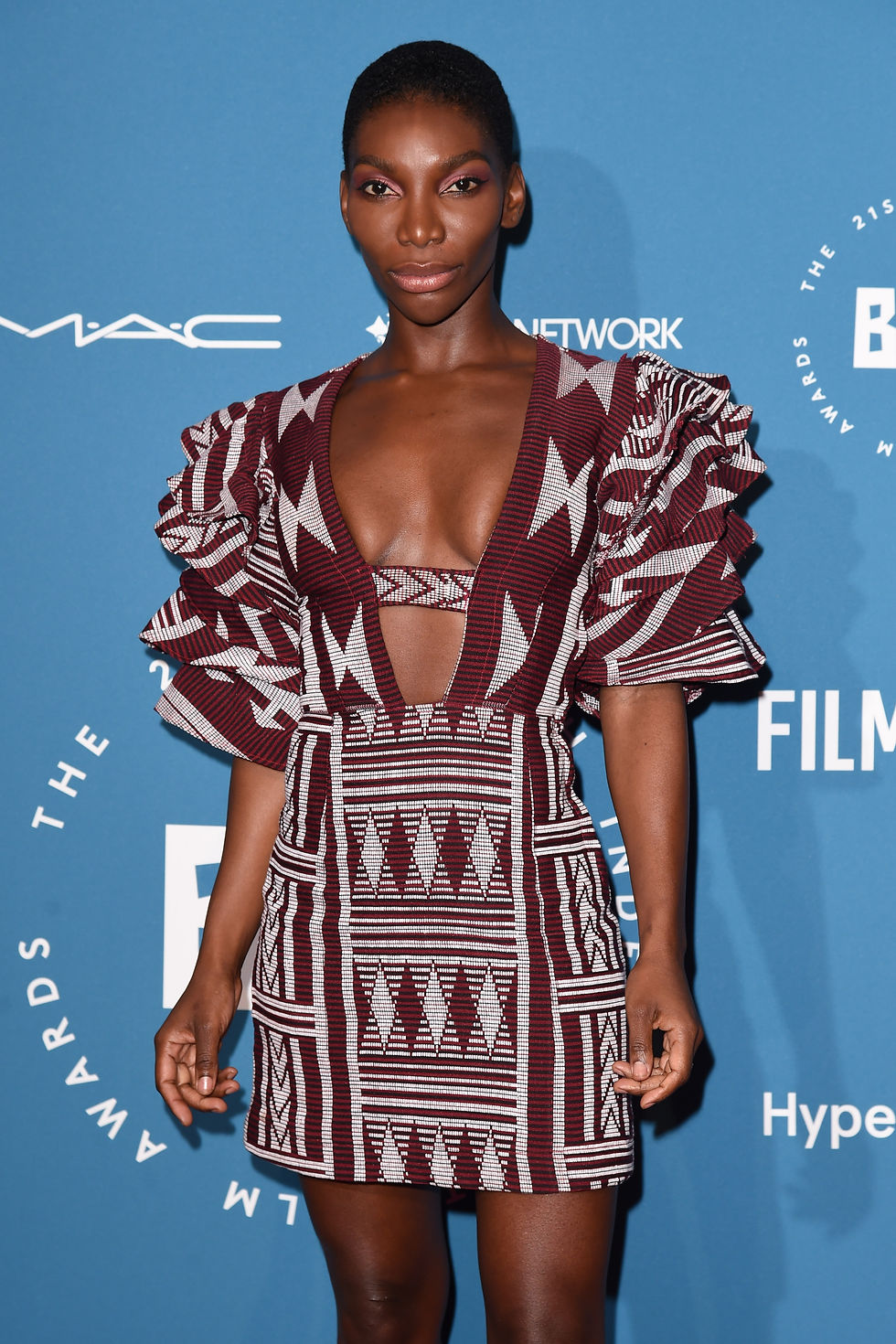Insights from the Stars: The Positive Impact of Intimacy Coordinators in Film and Television
- Evelyn Fogleman
- Nov 4, 2023
- 4 min read
Updated: Dec 7, 2023
As intimacy coordinators continue to establish new standards for how intimate scenes are created and filmed, it’s no secret that the experiences of performers both with and without them have remained at the forefront of the conversation.
After all, the creation of the role was explicitly designed in response to thousands of stories from performers who found themselves either unsupported or in the worst cases, extremely violated, while shooting scenes of nudity or simulated sex. The goal is to provide these performers with a consent expert, advocate, and choreographer who can build a space around these scenes that enables performers to do their best work while minimizing the risk of harm.
So, now that some of the most successful performers in the world have had a chance to work with intimacy coordinators, the question is: is the role living up to those expectations?
Famous Stars and Their Experiences
Phoebe Dynevor

Bridgerton actress Phoebe Dynevor has openly praised her intimacy coordinator Lizzy Talbot for all the support she provided during the numerous intimate scenes she had to tackle during the show.
"It was so great, because it felt safe and fun: you choreograph it like a stunt or a dance," she told Grazia magazine. "It's crazy to me that (an intimacy coordinator) hasn't been there in the past... I've done sex scenes before that I can't believe I did: it was only five or six years ago, but it would not be allowed now."
Emily Meade

It was Emily Meade’s self-advocacy on the HBO show The Deuce that catapulted the role of Intimacy Coordinators into the world of mainstream television. She found herself facing an unprecedented number and variety of sexual scenes in her role, which led to her asking HBO for someone to help support her and her fellow performers in this work.
She told Backstage of her talks with HBO, “I told them that I felt that there should be somebody there to oversee and liaise and [who are] specifically designated to help a sex scene. It wasn’t until then that I even learned that this was actually, in fact, a position that did exist, it just had never been utilized in film or television yet.”
When she was later asked whether working with intimacy coordinator Alicia Rodis improved her acting and improved the overall scenes, she replied,
“Yes. For me, it’s night and day. Obviously, I can’t speak for everyone, but anyone who’s had pushback or issues with it, an intimacy coordinator can be as involved or as uninvolved as you want them to be. Just their mere presence isn’t imposing and it doesn’t mean you have to be dealing with them every step of the way, but if you want to, you can. Having that option, and having that safety, it’s like being a child and having your parents in the next room. Just to have the safety of someone who’s there and who has my back in that way has allowed me such a freedom to let go and be more present and focus on my performance than on protecting myself in these scenes. It’s been hugely transformative for me.”
Michaela Coel

Coel not only starred in but also created I May Destroy You, a series that dealt with consent and sexual trauma. She has praised the role of intimacy coordinators in providing a structure within which actors can explore these themes safely.
During her BAFTA TV Awards speech, she praised her intimacy coordinator Ita O’Brien, saying, “Thank you for your existence in our industry, for making the space safe, for creating physical, emotional and professional boundaries so that we can make work about exploitation, loss of respect, about the abuse of power without being exploited or abused in the process.”
The Positive Feedback Loop
Actors who've had the support of intimacy coordinators often describe a "positive feedback loop." This term illustrates the cycle of trust and safety that enhances their performance, leading to more authentic and powerful scenes.
Performers aren’t the only members of the creative team who benefit from having additional expert support for these scenes. Directors have also spoken out about how working with an intimacy coordinator has positively impacted both their experience filming intimate scenes and the final result. Guardians of the Galaxy director James Gunn tweeted in response to negative remarks made about intimacy coordinators made by actor Sean Bean, "Of all the newer positions in the film industry, the one I’m the most grateful for are intimacy coordinators. If they’re doing their job right - and all the ones I’ve worked with have - they simply make sure everyone is on the same page - the director & all actors involved. In my experience, they allow actors to feel MORE free, not less, because everyone comes to set aware of what the boundaries are & aren’t & are aware of exactly what the filmmaker is looking for. They’re no different from stunt coordinators."
Creating a Standard in the Industry
The voices of stars like Dynevor, Meade, and Coel have been instrumental in advocating for the standardization of intimacy coordinators in the industry. Their experiences highlight the critical role these professionals play in the respectful portrayal of intimate scenes and dispel notions that intimacy coordinators impede the creative process or collaboration between actors and directors.
Instead, using a set of industry standards and protocols, intimacy coordinators build a framework of consent and transparency around intimate scene work that gives directors and performers freedom within those boundaries to create impactful stories and performances that feel authentic while minimizing the real risk of physical or psychological harm to the performers themselves.



Comments